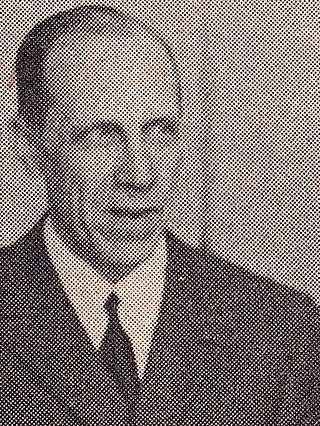| |||||
| Decades: | |||||
|---|---|---|---|---|---|
| See also: | |||||

Events from the year 1863 in Sweden
| |||||
| Decades: | |||||
|---|---|---|---|---|---|
| See also: | |||||

Events from the year 1863 in Sweden
Sweden purchased 2,000 french revolvers and designated them m/1863. [5]
| | This section needs expansion. You can help by adding to it. (June 2015) |
| | This section needs expansion. You can help by adding to it. (June 2015) |

Alfred Bernhard Nobel was a Swedish chemist, inventor, engineer and businessman. He is known for inventing dynamite as well as having bequeathed his fortune to establish the Nobel Prizes. He also made several important contributions to science, holding 355 patents in his lifetime.

The Nobel Prizes are five separate prizes awarded to those who, during the preceding year, have conferred the greatest benefit to humankind, as established by the 1895 will of Swedish chemist, engineer, and industrialist Alfred Nobel, in the year before he died. Prizes were first awarded in 1901 by the Nobel Foundation. Nobel's will indicated that the awards should be granted in the fields of Physics, Chemistry, Physiology or Medicine, Literature, and Peace. A sixth prize for Economic Sciences, endowed by Sweden's central bank, Sveriges Riksbank, and first presented in 1969, is also frequently included, as it is also administered by the Nobel Foundation. The Nobel Prizes are widely regarded as the most prestigious awards available in their respective fields.

Carl XVI Gustaf is King of Sweden.

The Stockholm School is a school of economic thought. It refers to a loosely organized group of Swedish economists that worked together, in Stockholm, Sweden primarily in the 1930s.

Stockholm Palace, or the Royal Palace, is the official residence and major royal palace of the Swedish monarch. Stockholm Palace is in Stadsholmen, in Gamla stan in the capital, Stockholm. It neighbours the Riksdag building. The offices of the King, the other members of the Swedish royal family, and the Royal Court of Sweden are here. The palace is used for representative purposes by the King whilst performing his duties as the head of state.
Turku and Pori Province was a province of independent Finland from 1917 to 1997. The province was however founded as a county in 1634 when today's Finland was an integrated part of Sweden. It is named after the cities of Turku and Pori.

Anders Chydenius was a Swedish Lutheran priest and a member of the Swedish Riksdag, and is known as the leading classical liberal of Nordic history.

The Nobel Foundation is a private institution founded on 29 June 1900 to manage the finances and administration of the Nobel Prizes. The foundation is based on the last will of Alfred Nobel, the inventor of dynamite.

The following is a timeline of the history of the city of Stockholm, Sweden.

The Nobel Memorial Prize in Economic Sciences, officially the Sveriges Riksbank Prize in Economic Sciences in Memory of Alfred Nobel, is an economics award funded by Sveriges Riksbank and administered by the Nobel Foundation.

The Nobel Prize in Chemistry is awarded annually by the Royal Swedish Academy of Sciences to scientists in the various fields of chemistry. It is one of the five Nobel Prizes established by the will of Alfred Nobel in 1895, awarded for outstanding contributions in chemistry, physics, literature, peace, and physiology or medicine. This award is administered by the Nobel Foundation, and awarded by the Royal Swedish Academy of Sciences on proposal of the Nobel Committee for Chemistry which consists of five members elected by the Academy. The award is presented in Stockholm at an annual ceremony on 10 December, the anniversary of Nobel's death.

Herman Alfred Leonard Wahlberg was a Swedish landscape painter.

Sara Elizabeth Wacklin was a Swedish-speaking Finnish educator and writer. She was a pioneer in educating girls, and can be regarded as the first female university graduate in Finland. She can also be regarded as the first female writer in Finland.

The Committee for the Sveriges Riksbank Prize in Economic Sciences in Memory of Alfred Nobel is the prize committee for the Nobel Memorial Prize in Economic Sciences, and fills the same role as the Nobel Committees do for the Nobel Prizes. This means that the committee is responsible for proposing laureates for the prize. The Committee for the Prize in Economic Sciences in Memory of Alfred Nobel is appointed by the Royal Swedish Academy of Sciences. It usually consists of Swedish professors of economics or related subjects who are members of the academy, although the academy in principle could appoint anyone to the committee. Two of the members of the founding committee as well as later members of the committee had also been associated with the Mont Pelerin Society.

Lars Erik Taxell, was a Finnish legal scholar and politician. He was the leader of the Swedish People's Party of Finland in 1956–1966. He was also the Rector of the Åbo Akademi University in Turku, Finland, in the 1950s and its chancellor in the 1980s.

Events from the year 1771 in Sweden

Events from the year 1743 in Sweden
Events from the year 1573 in Sweden
Events from the year 1599 in Sweden
Events from the year 1623 in Sweden